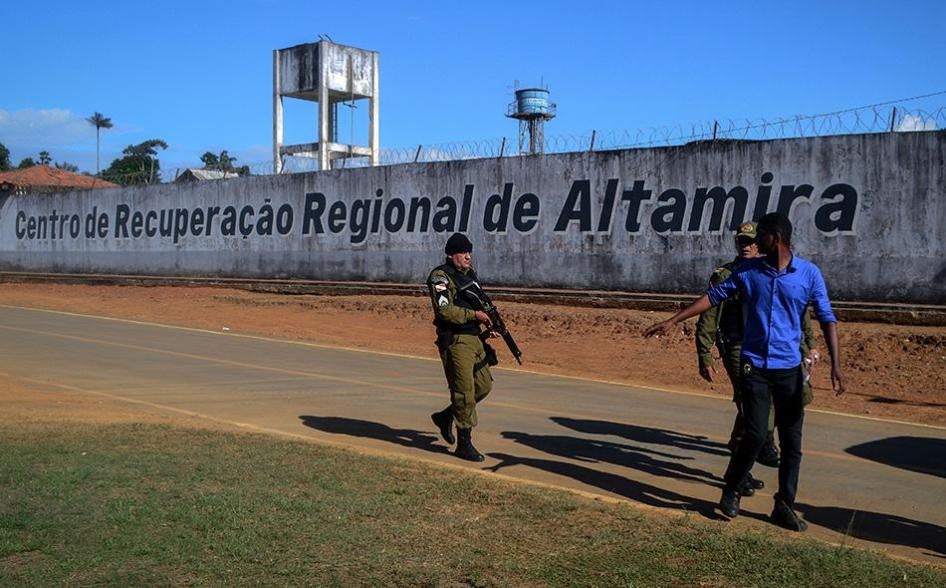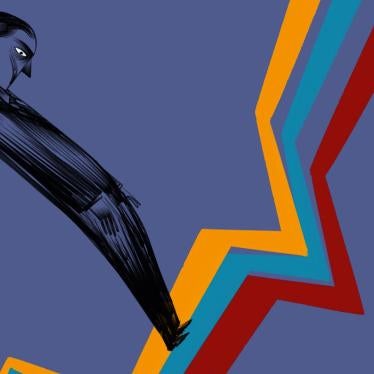For the second time since May, deadly rioting erupted in the Brazilian prison system. Police confirmed in the media that gang clashes at the Altamira jail in Pará State on July 29 took at least 58 inmates’ lives, with more than 40 asphyxiated in a fire, and 16 decapitated. According to the state of Pará Secretariat of Public Security, on July 31, four more inmates were killed during the transport of prisoners from Altamira to the city of Marabá.
These deaths come on top of 7 deaths in the same facility in September last year, and 22 deaths in another Pará prison in April 2018. In a killing spree in Amazonas State in May, 55 inmates died.
Authorities’ perpetual inaction – and apparent indifference to bloodbaths – makes it hard to see when the carnage in prisons will end.
Altamira Jail, where this week’s riot broke out, was holding 343 inmates, more than twice as many as the 163 for which it was built, according to the National Justice Council, an agency of the Brazilian Judicial System. The agency had reported this month that Altamira was in “terrible shape.”
Brazil’s prison system, holding more than 800,000 inmates, is the world’s third largest. Nearly 40 percent of Brazil’s prison population is awaiting trial, and many pretrial inmates are routinely held with convicted prisoners, in violation of international and Brazilian law. Prompt, fair hearings in the wake of arrests – and pretrial release, when appropriate – could go a long way toward reducing overcrowding. But that would take political will.
During the years we have investigated Brazil’s prisons, it’s become clear overcrowding and understaffing make these facilities extremely difficult to maintain humanely. This leaves detainees vulnerable to violence and gang recruitment. In the past Human Rights Watch has documented how people in prison for nonviolent crimes or never convicted of a crime can be forced to join violent gangs to survive. The consequences of the negligence reach far beyond prison walls, as gangs make prisons into grounds of forced recruitment.
A 2016 report by the Federal Prison Department documented how authorities’ failure to provide adequate health, education, work, and legal services was strengthening the very gangs the system is supposed to address. The Altamira jail has no cellphone blockers to prevent gangs from running businesses remotely.
President Jair Bolsonaro has vowed to “stuff prison cells with criminals.” This is bound to make not only the prisons but Brazil’s neighborhoods more dangerous.
When asked about the deaths of the detainees en route to the Marabá prison, Bolsonaro said without citing any evidence that the detainees were previously injured. “Problems occur,” he said dismissively.
Federal and state governments need to reform the judicial and incarceration systems to check rather than breed violence. The safety of everyone – inside and out of prisons – depends on it.










